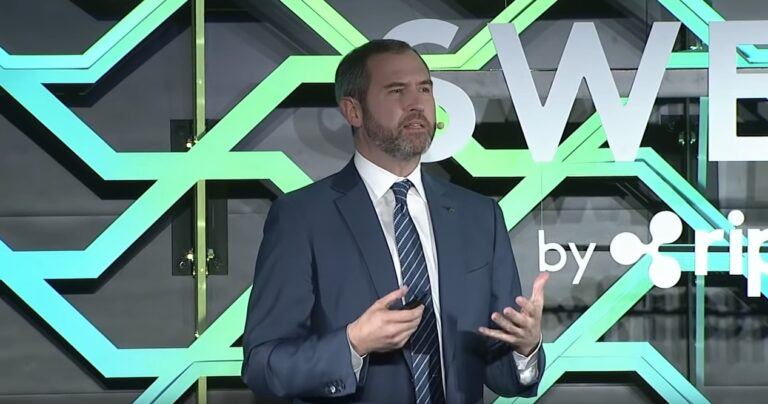In a recent interview, Ripple CEO Brad Garlinghouse talked about how the U.S. Securities and Exchange Commission (SEC) views cryptoasset XRP vs how it looked at by financial regulators in other major jurisdictions.
As you may remember, on 22 December 2020, the SEC announced that it had “filed an action against Ripple Labs Inc. and two of its executives, who are also significant security holders, alleging that they raised over $1.3 billion through an unregistered, ongoing digital asset securities offering.” Essentially, the SEC is arguing that XRP is a security under U.S. federal securities laws.
Throughout this lawsuit, Ripple’s legal team has been using the “fair notice” (or “due process”) defense. On 15 March 2021, Kevin Chen, an attorney at Homiak Law LLC, took to Twitter to explain how this defense works and more specifically how Ripple is using it:
- “Constitutional due process generally requires that persons/entities must receive fair notice of conduct that is legally forbidden. This applies to criminal laws and civil laws imposing penalties.“
- “Defendants making a due process challenge usually argue a statute fails to give fair notice because the statute is vague.“
- “A statute is vague if a “person of ordinary intelligence” can’t determine what conduct is forbidden, or if the statute encourages arbitrary or discriminatory enforcement.“
- “A standard vagueness argument might go something like this: the Securities Act and Howey test make it impossible to know whether #XRP is a security. So, #Ripple could not know the Securities Act covers XRP offerings/sales/etc.“
- “As the #SEC pointed out, courts have already rejected this argument for other cryptos. But #Ripple is not (only) making this argument.“
- “#Ripple‘s point is that the #SEC actively created confusion over #XRP’s status through conflicting guidance. E.g., Director Hinman made a public statement that the SEC does not consider bitcoin or ether to be securities.“
- “It’s less about how the law can be interpreted clearly and more about what the agency is doing to sow confusion.“
On 11 March 2022, Analisa Torres, who is a judge for the U.S. District Court for the Southern District of New York, denied a motion the SEC had made to strike Ripple’s fair notice defense under Federal Rule of Civil Procedure 12(f).
Later that day, Stuart Alderoty, General Counsel at Ripple, commented on this victory for Ripple’s legal team:
On the same day, Ripple CEO Brad Garlinghouse called this “a huge win for Ripple“.
On 14 March 2022, Ripple CEO Brad Garlinghouse was interviewed by Bloomberg TV anchor Emily Chang. When she said Garlinghouse to explain what this victory mean to Ripple and to the crypto industry, he replied:
“Really, I think it is a victory not just for Ripple the company, but also the whole crypto industry because the SEC, I think, has consistently tried to take point, really expand their reach and their control over the crypto industry. We’ve seen that not just with Ripple, but in other cases…
“The executive order came out and really said to all agencies ‘hey, we need to be coordinated… if we want the United States to be competitive in this key technology platform, we need to not have one group behaving in one way and another group behave in another way’… So, we’re really pleased by, not just the court’s decision, but also in the executive order that came out last week.“
Chang then asked Garlinghouse if he believes that the SEC is “taking a tougher stance than the administration at large”.
The Ripple CEO replied:
“I think there’s no question that the United States Securities and Exchange Commission has reduced the competitiveness of this critical industry in the United States. I think they’ve been out of step not just with other parts of the U.S. government, but they’ve been out of step with other major economies around the world.
“The only country in the world that considers XRP — the digital asset that Ripple uses in our technology stack — the only country in the world that thinks XRP could be a security is the United States. We work successfully in the UK, in Switzerland, in Japan, in the UAE, in Singapore. All of these countries have acknowledged XRP is a currency because that’s how it’s used.
“If we want the US to be a leader in this new growing critical innovative industry, like the internet 20 years ago, we need that regulatory clarity. And the SEC is really just coming out and saying ‘we are going to file lawsuits, enforcement, we’re not going to provide clear rules so that people know how to operate as other countries have done‘.”
Disclaimer
The views and opinions expressed by the author, or any people mentioned in this article, are for informational purposes only, and they do not constitute financial, investment, or other advice. Investing in or trading cryptoassets comes with a risk of financial loss.









